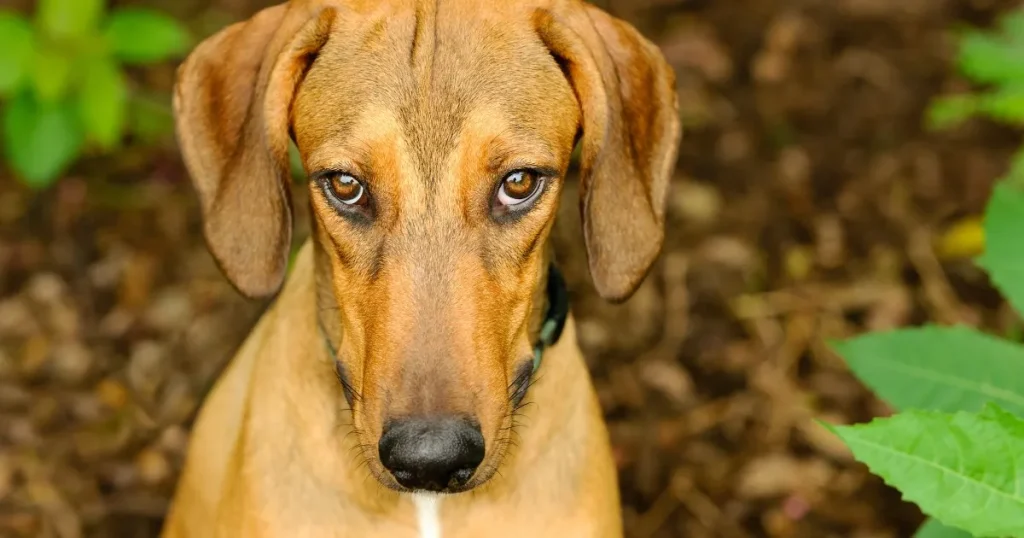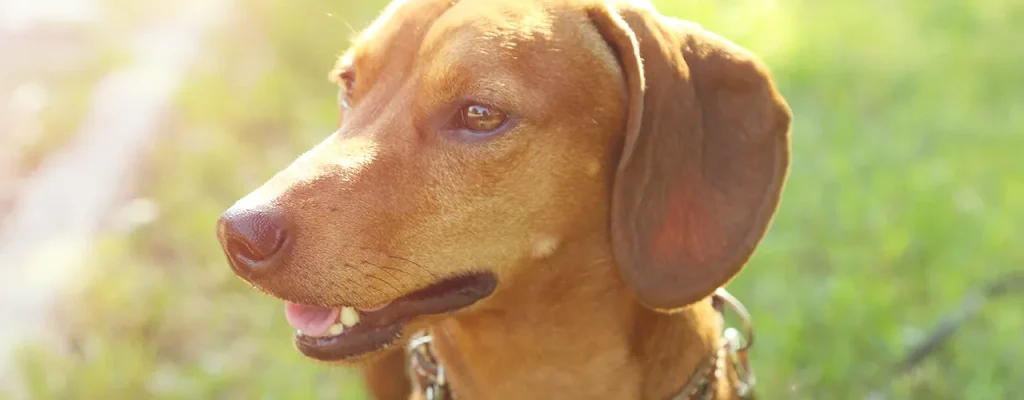Why Do Dogs Eat Poop? Poop-eating, or coprophagia in dogs, isn’t the activity you would think your pet would enjoy. This is all the information you need to understand why dogs eat poop and what you can do about it.

If you’ve observed your dog consuming excrement, you may be concerned about a possible dietary shortage or psychological issue.
It might upset you, but it might just be a characteristic of dogs. So many dogs consume their waste that vets regard it as usual.
Canine conspecific coprophagy is the scientific term for the behavior of certain canines to consume their own or other species’ excrement. There is no documented link between this illness and food.
In most cases, eating dog feces is just an unpleasant habit, but if it’s something new, there might be another issue at hand.
Why Do Dogs Eat Poop?
See your veterinarian if your adult dog begins consuming excrement to rule out any health issues, such as:
- Parasites.
- Diets lacking in calories and nutrients.
- Syndromes related to malabsorption.
- Thyroid issues, diabetes, Cushing’s disease, and other illnesses that could boost hunger.
- Drugs such as Steroids.
Dogs may occasionally begin eating their waste due to behavioral cues or environmental stressors such as the following:
Separation
Research indicates that dogs housed in kennels or basements by themselves have a higher propensity to consume human waste than dogs living near their owners.
Strict Detention
A dog may become addicted to eating excrement if kept in a limited space for an extended period. Coprophagia is a common condition in dogs rescued from overcrowded animal shelters.
Uncertainty
Using severe tactics or punishment during house training is a common cause of coprophagia.
This hypothesis states that dogs who eliminate and then eat their feces in an attempt to remove the evidence face harsher consequences. It turns into an endless loop.
Focus-Seeking
Dogs may consume their excrement to elicit a response from their owners, which is inevitable. Therefore, it’s crucial to try your best not to become too upset if you find your dog eating poop.
READ ALSO:
- Why Do Cougars Scream?
- Why Do Dogs Eat Grass?
- Why Do Anglerfish Have A Light?
- Why Do Blobfish Look Like Humans?
Unsuitable Connection to Actual Food
Dogs that are fed near their excrement may confuse the smells of food and feces and become incapable of distinguishing between the two.
Elimination or toilet spaces should be kept apart from feeding and watering locations.

Smelling their Mothers’ Excrement
When puppies detect scents of feces on their mom’s breath after she has cleansed them, they will become puzzled.
Mothers may also occasionally regurgitate food that has been contaminated with puppy feces. This is referred to as an “appetitive inoculation,” which could encourage a puppy to pick up this negative behavior.
Cohabiting with an Ill or Elderly Dog
In certain situations, particularly when there is fecal incontinence, a healthy dog may ingest the waste of a weaker dog in the home.
Researchers speculate that this could have something to do with the natural tendency to defend the pack from intruders.
Is It Risky for My Dog to Consume Poop?
Dogs often eat excrement, and while we find it repulsive, this activity is usually harmless.
Although your dog might love eating excrement, you should generally prevent them from doing so because there’s always a chance that they could contract bacteria, viruses, or parasites.
Additionally, certain treatments, like worming drugs found in horse manure, can travel through an animal and end up in their feces, which could be poisonous to your dog.
Give your dog something to eat or drink later to assist rinse their mouth out if you are unable to stop them from ingesting excrement. Keep them from licking you.
Make sure your hands are up to date on any worming treatments and always wash them thoroughly after coming into touch with your dog’s mouth or saliva.
What Not to Do if Your Dog Eats Poop
It’s crucial that you remain calm and not react if your dog does consume excrement. Never yell or reprimand your dog because doing so may exacerbate behavioral problems.
It may be difficult to quit the habit of eating poop because it is a natural action for them.
Tips to Stop Your Dog from Eating Poop
To sum up, here are a few strategies to get your dog to stop eating poop:
- To rule out a behavioral problem or underlying sickness, consult your veterinarian.
- To guarantee optimal nutrition, feed them a high-quality meal with some variation and vitamins.
- To help them get more satiated, slow them down using a slow-feeder bowl or puzzle feeder.
- Instruct the instructions to “leave it” and “come.”
- During toilet training, give positive reinforcement instead of punishing accidents.
- Keep an eye on your dog when they’re walking outside.
- Immediately tidy up after your pets.
- Take it easy if you catch your dog consuming excrement.
- Make sure to provide them with lots of cerebral stimulation, exercise, and involvement.
- Don’t coop up your dog for an extended period.
- Make sure the crate is spacious enough for them to feel comfortable in.
- Keep incontinent dogs and litter boxes off-limits.
How to Clean Your Dogs if They Ate Poo?
One of the worst things about watching your dog eat feces is that you know they’ll want to lick you later on or that their breath will smell awful, so how can you clean them up? If your dog likes to consume poop, you could:
- Give them something to eat and drink so that anything bad can be washed away and they can feel a little more refreshed.
- Wipe their mouth with a cloth and some water.
- If you already have a toothbrush, use your dog’s. Never use toothpaste meant for humans because some of it could be poisonous to dogs.
- To make it as stress-free as possible, give them a dental stick to chew on and lots of praise as you clean them up. It will also assist in distracting you from it!
When Should You Contact a Vet?
Always get counsel from your veterinarian if your dog routinely consumes excrement or if you have concerns about their behavior or health, especially if this is a new problem.
Your veterinarian might be able to offer you advice on how to handle this issue, or they might recommend that you see a behaviorist.
You should call your veterinarian immediately if your dog is eating feces and exhibiting other disease symptoms.
Even though it may be upsetting to witness, coprophagy—the eating of dog poop—isn’t usually a reason for concern.
It can indicate that your dog needs more nutrients, a natural behavior, or a stress reaction.
See your veterinarian if this is a new behavior. If not, try feeding your dog differently, giving them additional cerebral exercise, or employing deterrents to help break the habit.

